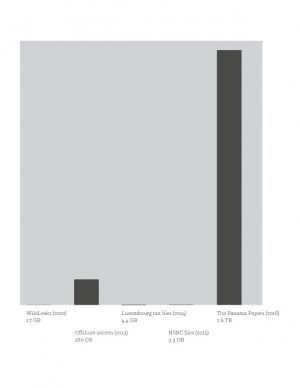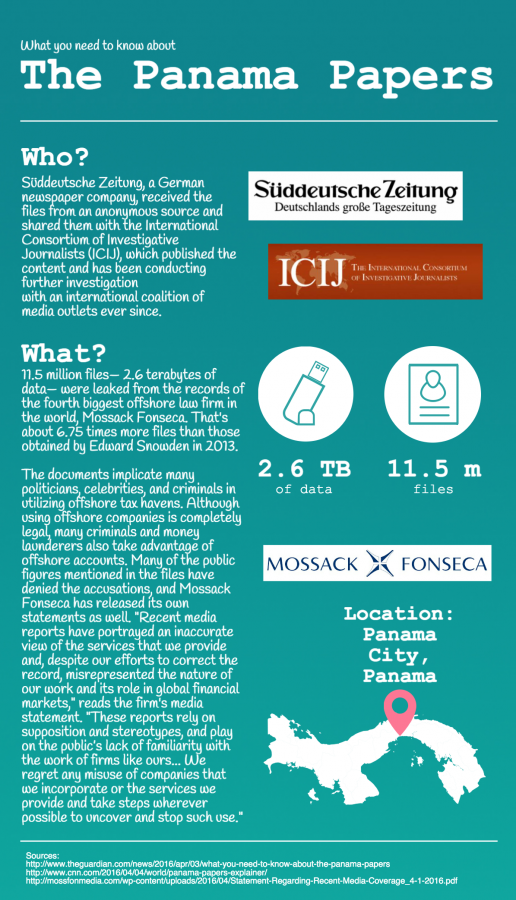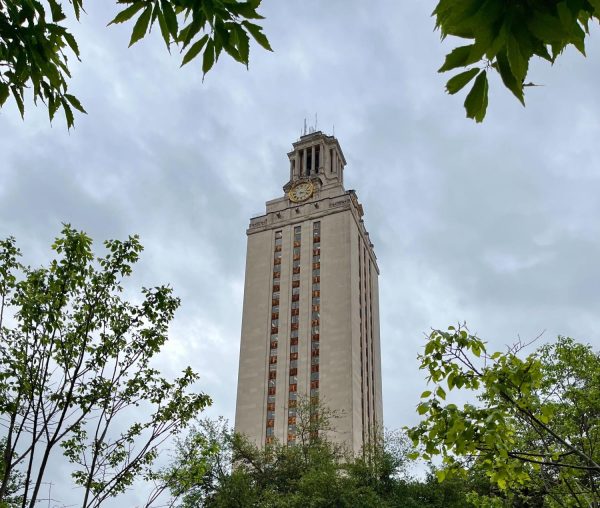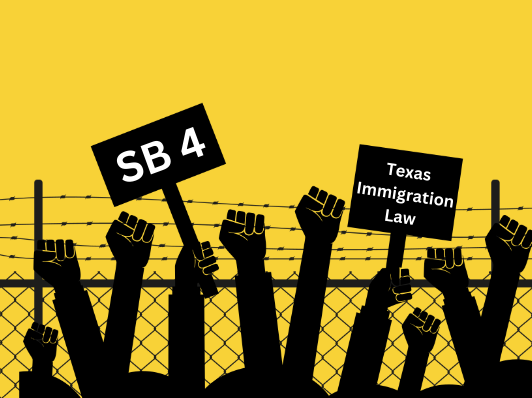Panama Papers Face Ongoing Investigations
Panama law firm Mossack Fonseca, the world’s fourth largest offshore law firm, recently had a leak. Well, leak is an understatement; it was more like a flood. With roughly 11.5 million files and 2.6 terabytes of information “flooding” to the public, unsavory truths have been, and are still being, uncovered.
On April 2, German newspaper Süddeutsche Zeitung said they had received encrypted internal documents from an anonymous source over a year ago. Realizing how huge this leak was, Süddeutsche Zeitung shared the information with the International Consortium of Investigative Journalists (ICIJ). The papers hold documentation of how world leaders and power players stored their money for a multitude of reasons, most commonly as a loophole to not be at the top of the tax bracket. Not only is tax evasion illegal, the money funneling through this offshore bank is being used for . This has been going on since the 1970s.
“The Panama Papers revealed a lot of hidden transfers of money and uncovered sources in which illegal money was hidden,” Muskan Momin ‘18 said. “This illegal money itself allowed for further concentration of wealth which definitely limited the access to opportunity for many people who weren’t part of the wealthy class. The unveiling of the Panama Papers also showed a deficiency in governments regarding their security and how they fight illegal trade and profits.”
It’s almost embarrassing how long Mossack Fonseca has been aiding influential people in tax evasion services without the public’s knowledge. The most harmful backlash is the loss of trust in world leaders and governments, because a multitude of people in power have been either funneling money through the firm, mentioned in the papers, or have been involved in scandals that the Panama Papers reveal.
“The magnitude of information that was hidden from the public eye, it’s astounding,” Claire Tinker ‘19 said. “2.6 terabytes of secret documents, funds, and scandals. Makes me wonder what else is concealed from the common man.”
In these files, 140 politicians from more than 50 countries are mentioned. Close associates and a trail of two billion dollars leading back to President Vladimir Putin of Russia; the father of Prime Minister David Cameron of Britain; relatives of President Xi Jinping of China; members of the Chinese Communist Party Politburo Standing Committee; King Salman of Saudi Arabia; Sigmundur David Gunnlaugsson, who resigned as prime minister of Iceland after the revelations; President Mauricio Macri of Argentina; officials from FIFA and UEFA; celebrities such as Aishwarya Rai, and multiple professional soccer players including Lionel Messi were all named in the documents, but not all the names have been released yet.
“I’m surprised that these offshore companies aren’t shut down,” Jenika Khatri ‘17 said. “Especially because money laundering and tax evasion is prevalent among the people who are identified in the papers.”
The point of having an offshore, independent law firm is secrecy, which in turn is also the greatest consequence.
“The offshore world really only has one product and that is secrecy,” Director of ICIJ Gerard Ryle said. “And when you take away that product they don’t have anything for sale.”
The impact the Panama Papers leak has had on the world is unmeasurable because not all of the information in the papers has been released to the public yet. Mossack Fonseca has not admitted to any wrongdoing, and is, for now, respecting client confidentiality. Although the Panama Papers is the largest data leak in history, the world has only scratched the surface of a larger scandal.

Hi, I'm Jasmine and I believe in aliens. Between training MMA and being an IB student, I manage the "Let's Talk About" section of the Horizon. My absolute favorite...





